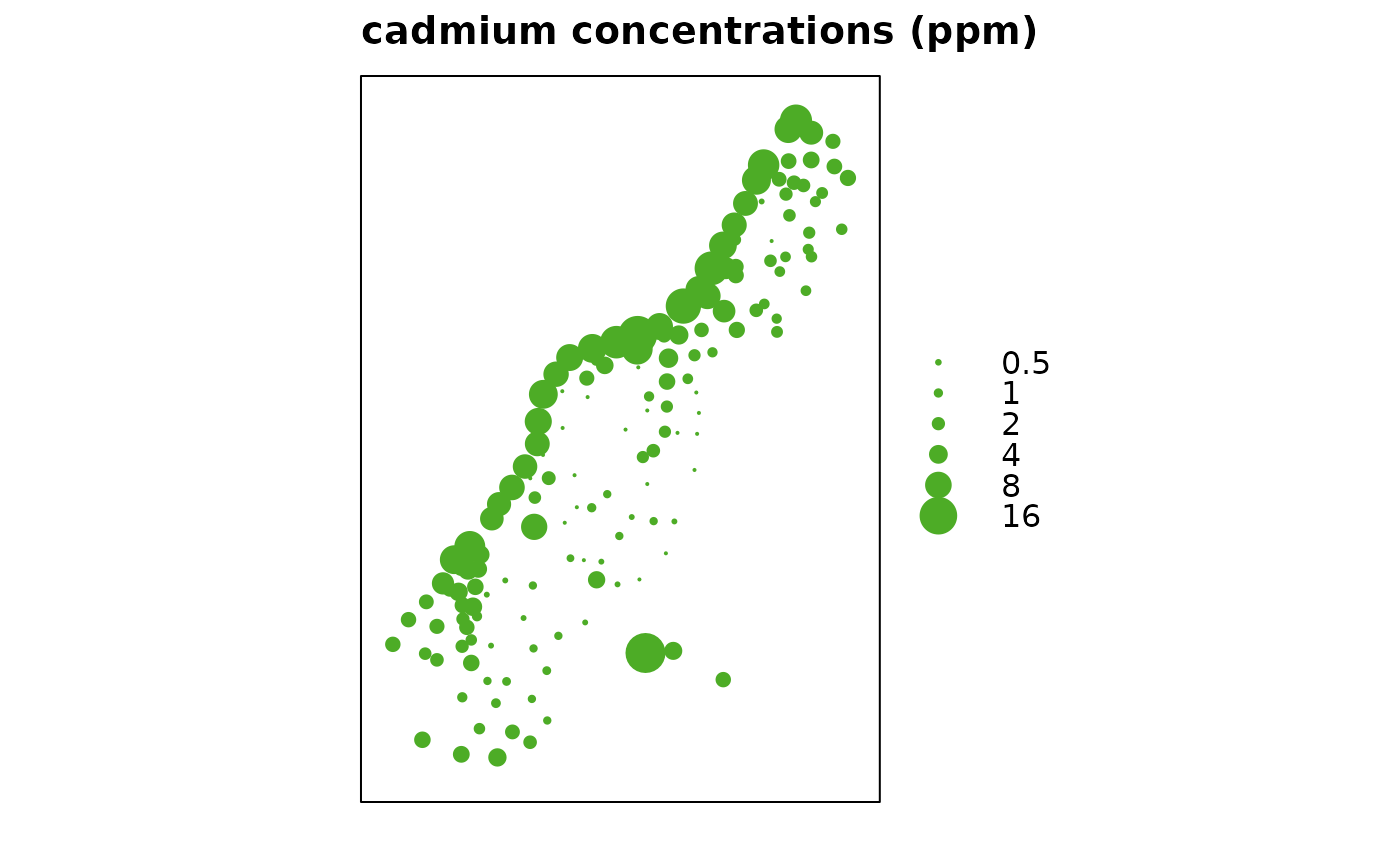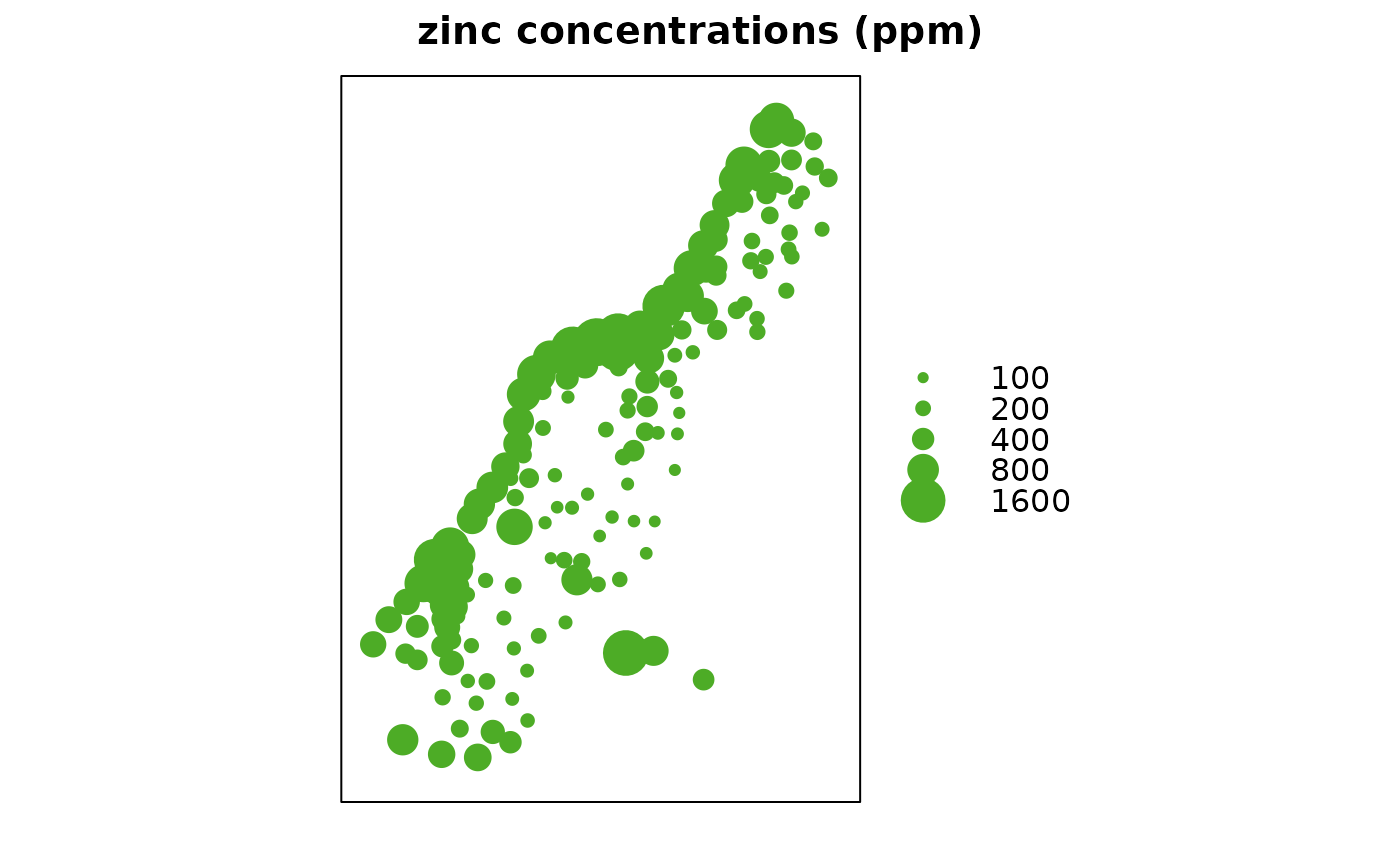Create a bubble plot of spatial data
bubble.RdCreate a bubble plot of spatial data, with options for bicolour residual plots (xyplot wrapper)
bubble(obj, zcol = 1, ..., fill = TRUE, maxsize = 3, do.sqrt = TRUE, pch,
col = c("#d01c8b", "#4dac26"), key.entries = quantile(data[,zcol]), main,
identify = FALSE, labels = row.names(data.frame(obj)), key.space = "right",
scales = list(draw = FALSE), xlab = NULL, ylab = NULL, panel = panel.bubble,
sp.layout = NULL,
xlim = bbexpand(bbox(obj)[1,], 0.04),
ylim = bbexpand(bbox(obj)[2,], 0.04))Arguments
- obj
object of, or extending, class SpatialPointsDataFrame or SpatialGridDataFrame, see coordinates or SpatialPointsDataFrame; the object knows about its spatial coordinates
- zcol
z-variable column name, or column number after removing spatial coordinates from x@data: 1 refers to the first non-coordinate column
- fill
logical; if TRUE, filled circles are plotted (pch = 16), else open circles (pch = 1); the pch argument overrides this
- maxsize
cexvalue for largest circle- do.sqrt
logical; if TRUE the plotting symbol area (sqrt(diameter)) is proportional to the value of the z-variable; if FALSE, the symbol size (diameter) is proportional to the z-variable
- pch
plotting character
- col
colours to be used; numeric vector of size two: first value is for negative values, second for positive values. Default colors: 5-class PiYG from colorbrewer.org.
- key.entries
the values that will be plotted in the key; by default the five quantiles min, q.25, median q.75, max
- main
main plotting title
- identify
logical; if true, regular
plotis called instead ofxyplot, and followed by a call toidentify().- labels
labels argument passed to
plotifidentifyis TRUE- ...
arguments, passed to
xyplot, orplotif identification is required.- key.space
location of the key
- scales
scales argument as passed to xyplot
- xlab
x-axis label
- ylab
y-axis label
- panel
panel function used
- sp.layout
possible layout items; see spplot
- xlim
x axis limit
- ylim
y axis limit
Value
returns (or plots) the bubble plot; if identify is TRUE, returns
the indexes (row numbers) of identified points.
Examples
data(meuse)
coordinates(meuse) <- c("x", "y") # promote to SpatialPointsDataFrame
bubble(meuse, "cadmium", maxsize = 2.5, main = "cadmium concentrations (ppm)",
key.entries = 2^(-1:4))
 bubble(meuse, "zinc", main = "zinc concentrations (ppm)",
key.entries = 100 * 2^(0:4))
bubble(meuse, "zinc", main = "zinc concentrations (ppm)",
key.entries = 100 * 2^(0:4))
